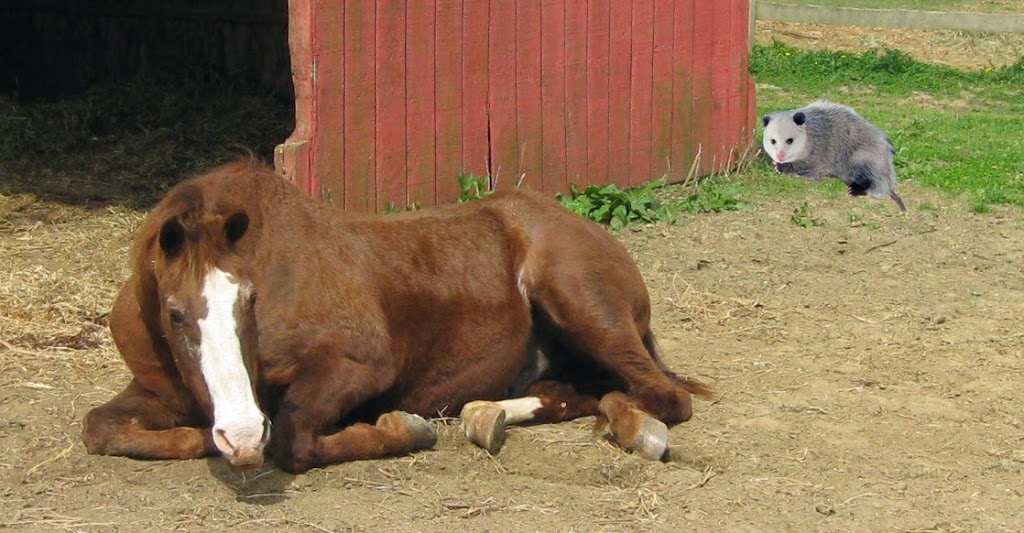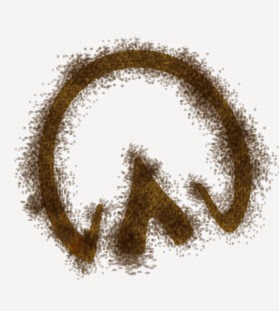I’m glad you stuck around to find out about the nasty protozoa that causes Equine Protozoal Myeloencephalitis (EPM). Remember I talked a little about this month? If you’re just tuning in, check out my previous blog post, “Recycling Manure”.
My fellow scientist and veterinarian, Dr. Mike Fugaro is an expert in EPM. He even chatted with my good friends from “Horses in the Morning” about it! Dr. Fugaro also teaches the Advanced Equine Health Care and Management course at Rutgers University and Centenary College.
 EPM is very dangerous to horses and is sometimes hard to diagnose. These protozoa (a type of parasite) live and grow in a number of wild animals, but are more commonly found in opossums. These pesky protozoa are transmitted to horses when the opossum poops and a horse ingests grass that it has pooped on. The protozoa makes its way into the blood stream, crosses over the blood-brain barrier, and makes its home in the “encephalo” or brain!
EPM is very dangerous to horses and is sometimes hard to diagnose. These protozoa (a type of parasite) live and grow in a number of wild animals, but are more commonly found in opossums. These pesky protozoa are transmitted to horses when the opossum poops and a horse ingests grass that it has pooped on. The protozoa makes its way into the blood stream, crosses over the blood-brain barrier, and makes its home in the “encephalo” or brain!
How do you know if your horse has EPM? Well, it’s hard to diagnose. The symptoms can range from lameness (mild) to one-sided paralysis (severe) and can appear in only a few hours. The only way to know for certain is a blood test and a spinal tap. No, I’m not talking about the ‘80s hair rock band, Spinal Tap. (My ‘80s glam days are long over!) A spinal tap is poking the spine with a needle and getting the cerebrospinal fluid.
Your horse is positive for EPM; now what? There are three different medications out there, but you have to be careful that they are not compounded drugs. These drugs may be cheaper, but they can also be life-threatening and aren’t under FDA-approval. The best recommendation, straight from the horse’s mouth, is to consult with your expert veterinarian.
All of this seems really scary, but on the bright side EPM is rare. Luckily, I haven’t seen any opossums around. Maybe I should ask my owner to put up some scarecrows to spook them away, just in case. Scare deterrents are a good way to discourage those night critters from creeping into your field. Just make sure your horses don’t get spooked, too!
To learn more about EPM, tune in to the “Horses in the Morning” podcast at time segment 15:05 to hear Dr. Fugaro tell you all about it.
Your pal,
Lord Nelson


